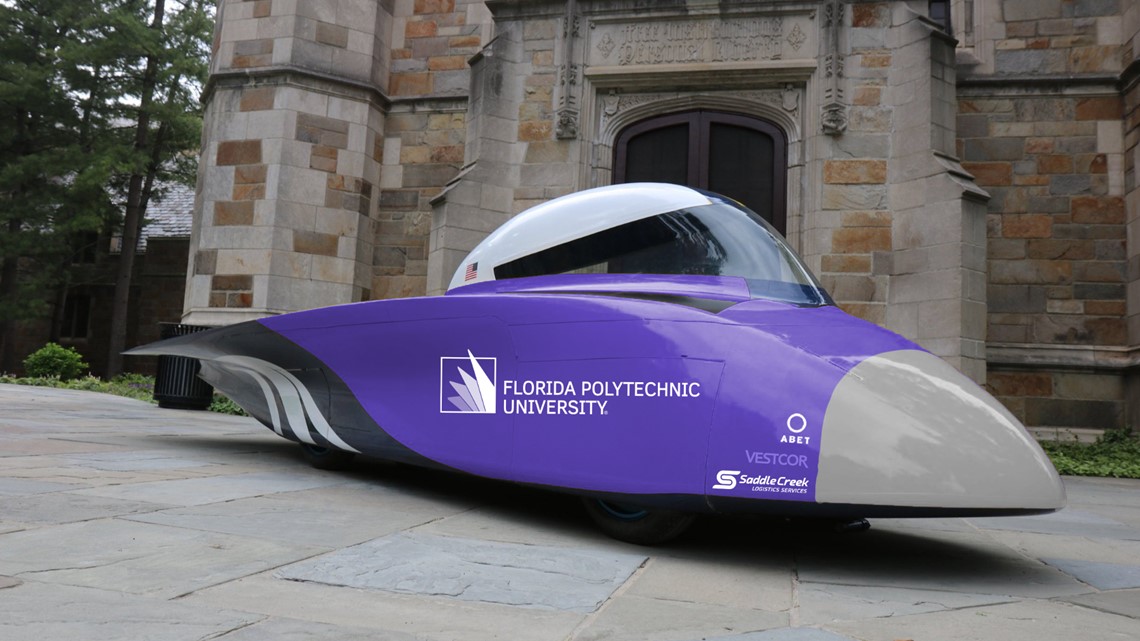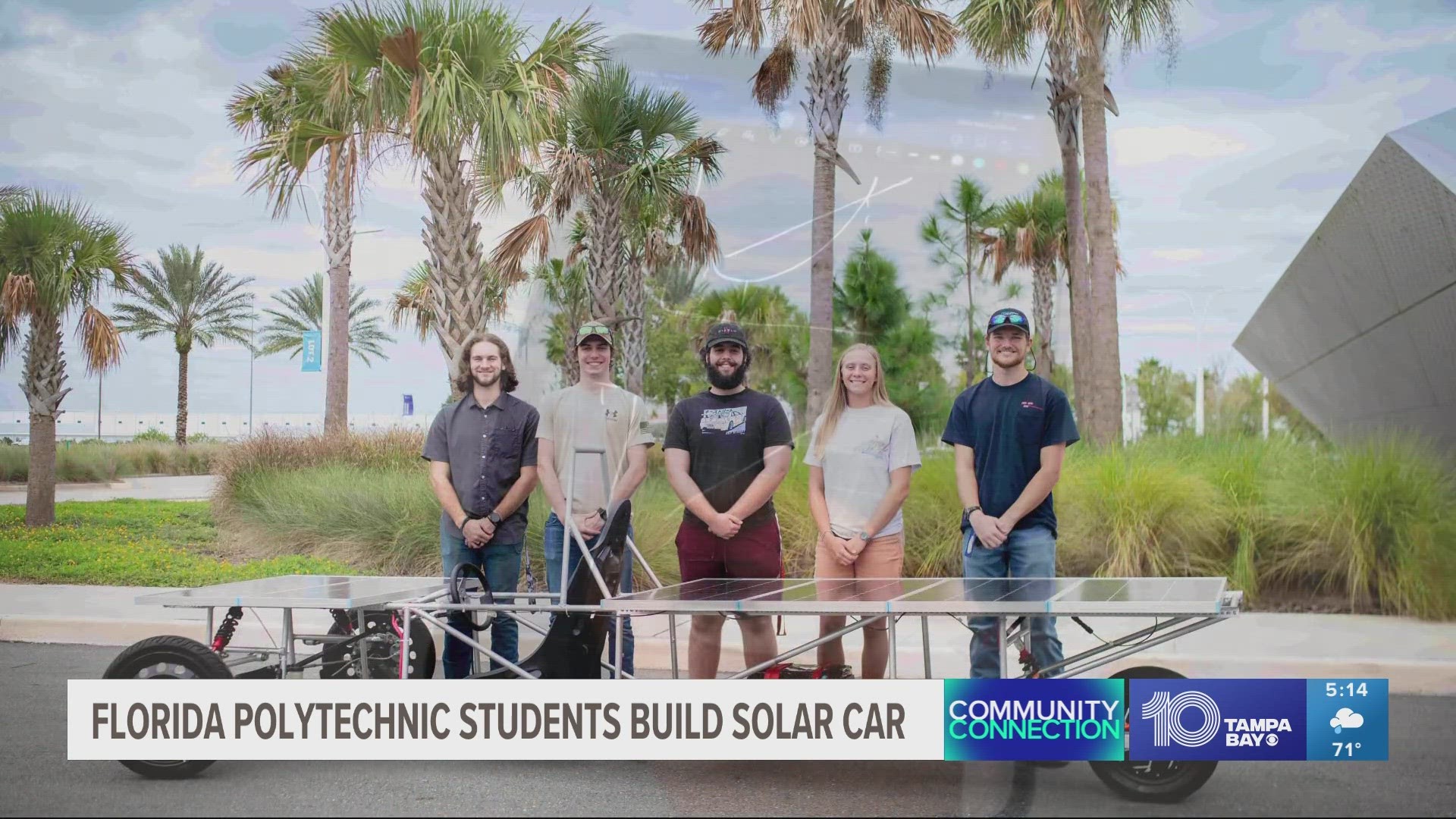LAKELAND, Fla. — Ten years ago, the campus was just starting to take shape. That signature building you see off of Interstate 4 while driving through Polk County is the Innovation, Science and Technology Building at Florida Polytechnic.
Florida's only "all stem" public university was created after USF Polytechnic broke away from the USF system.
Fast-forward a decade, and the university is putting kids on the fast track to success and getting high ranks from U.S. News and World Report. It's in the top 20 nationwide for its public engineering program without a Ph.D. Now, we're getting a first-hand look at how some students are tooling and tinkering to build a solar race car from scratch inside the Barnett Applied Research Center.
“We've put about a hundred or so miles on this car specifically, and the endurance on this car is about 40 to 45 miles on a single charge,” Florida Poly Junior Spencer Blackwell said.
“It's basically like a golf cart, but with a lot of solar panels on it,” Professor Matt Bohm said.
It doesn't quite look like the car of the future, but this could be a jumping-off point for something big. Students spent all last year making this prototype. Bohm said to think of a Tesla with solar panels. Now, they're designing something that will look like this when they're done.


“The goal this year is to design something that's race-worthy, and go to Formula Sun Grand Prix, which is part of the American Solar Challenge at Topeka, Kansas, it's a three-day track race. Whoever does the most laps wins,” Bohm said.
The team wants to go head-to-head with some of the brightest minds in engineering.
“I think you just get a little trophy, maybe some respect, and of course, accolades for university. Places like MIT, University of Michigan, and University of Texas, University of Florida have a team, so it's basically our version of NCAA division one sports,” Bohm said.
Blackwell said one big difference will be using solar cells on the final race car versus the panels they used on the prototype.
“You can create your own custom sizing. So that'll fit better for our body. And it'll make us we can reduce our profile as well as keep within the weight, the width and length restrictions,” Blackwell said.
The mechanical engineering major says it was the smaller campus that drew him to Florida Poly.
“It's kind of an up-and-coming university, and there was space to do things like this,” Blackwell said.
And the learning in those smaller classes is paying off.
“You have those aha moments,” Bohm added. ”They’re spending time outside of the classroom, applying what they've learned in the classroom, on something that's fun, and hopefully, you know, they get a kick out of it.”
“I think this is like a very interesting step forward. For both consumers as well as Florida, Polly, I think this is the start of something great for kind of the racing team here at Florida Poly,” Blackwell said. "I do think that there is very much a place in the future for solar-powered and electric vehicles."
Right now, the students have been driving this solar car around campus, but they want to eventually try out the new car at Suntrax, the state's testing track for autonomous vehicles. It is near the campus. They hope the experience will help them prepare for the event in Kansas next July.

